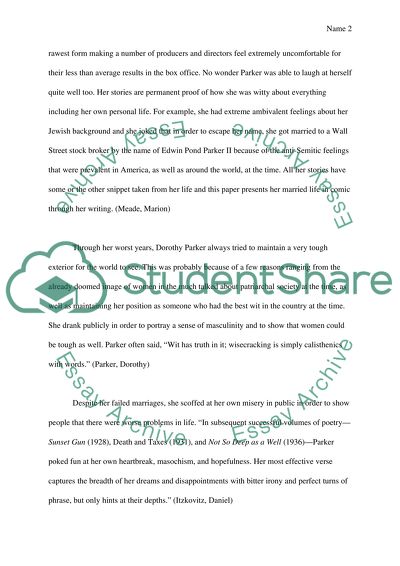Cite this document
(“Dorothy Parker and an Analysis of Her Short Stories Research Paper”, n.d.)
Retrieved from https://studentshare.org/english/1435657-dorothy-parker-and-an-analysis-of-her-short
Retrieved from https://studentshare.org/english/1435657-dorothy-parker-and-an-analysis-of-her-short
(Dorothy Parker and an Analysis of Her Short Stories Research Paper)
https://studentshare.org/english/1435657-dorothy-parker-and-an-analysis-of-her-short.
https://studentshare.org/english/1435657-dorothy-parker-and-an-analysis-of-her-short.
“Dorothy Parker and an Analysis of Her Short Stories Research Paper”, n.d. https://studentshare.org/english/1435657-dorothy-parker-and-an-analysis-of-her-short.


